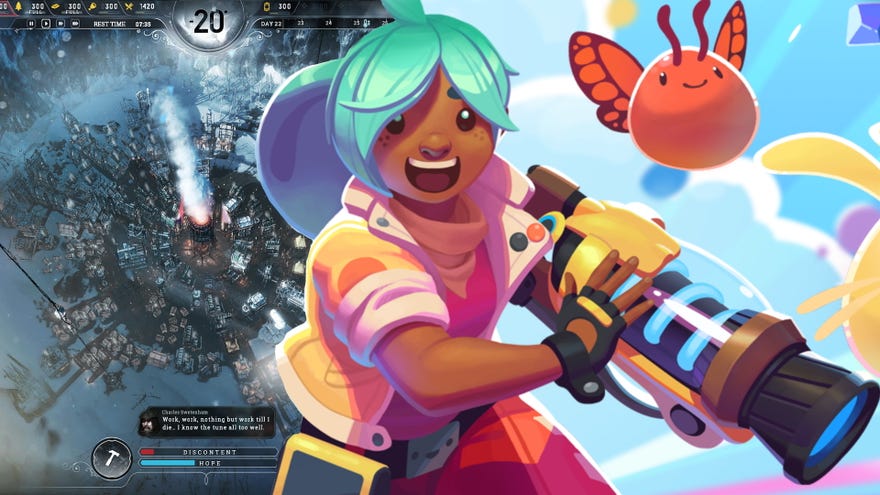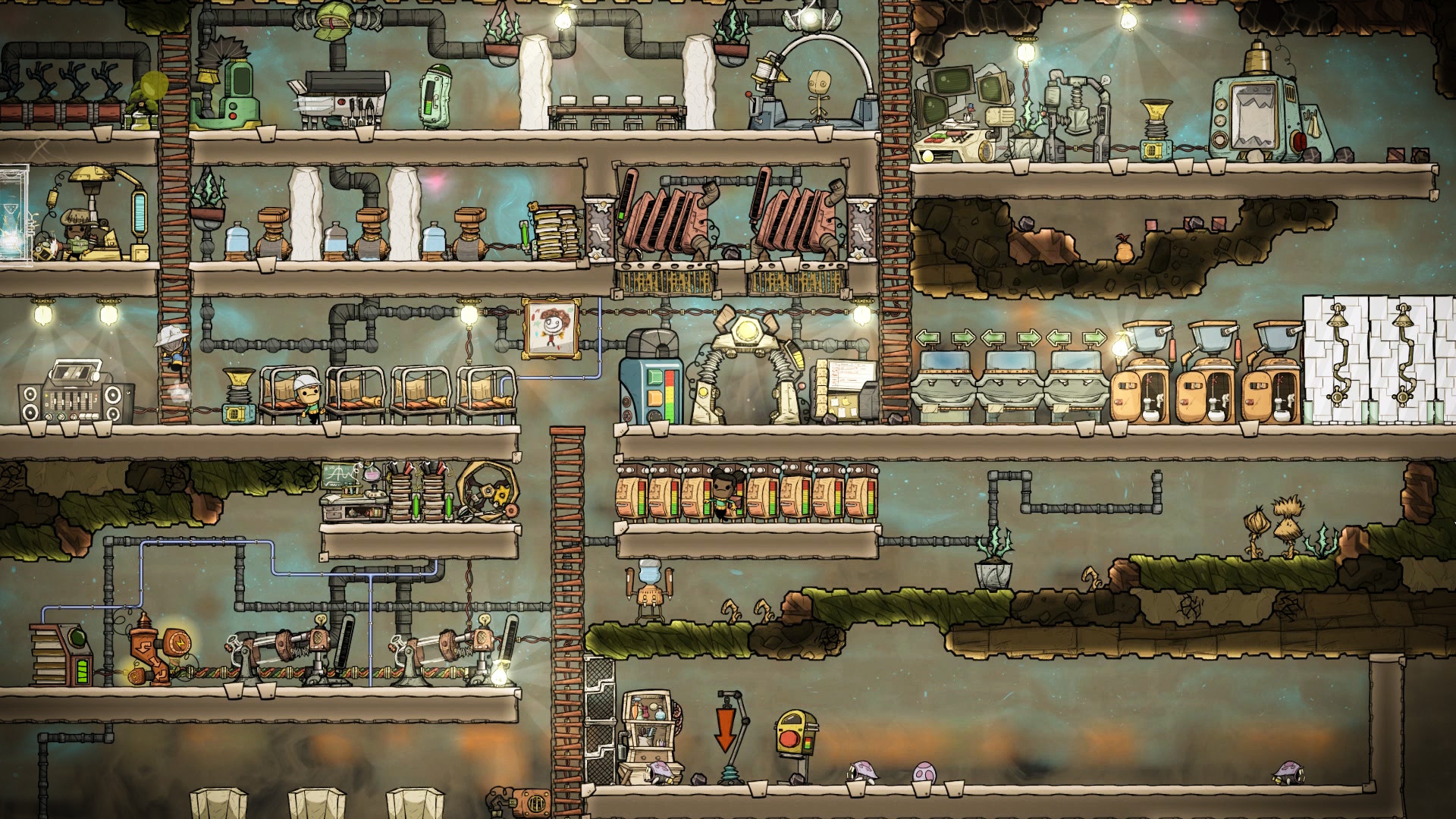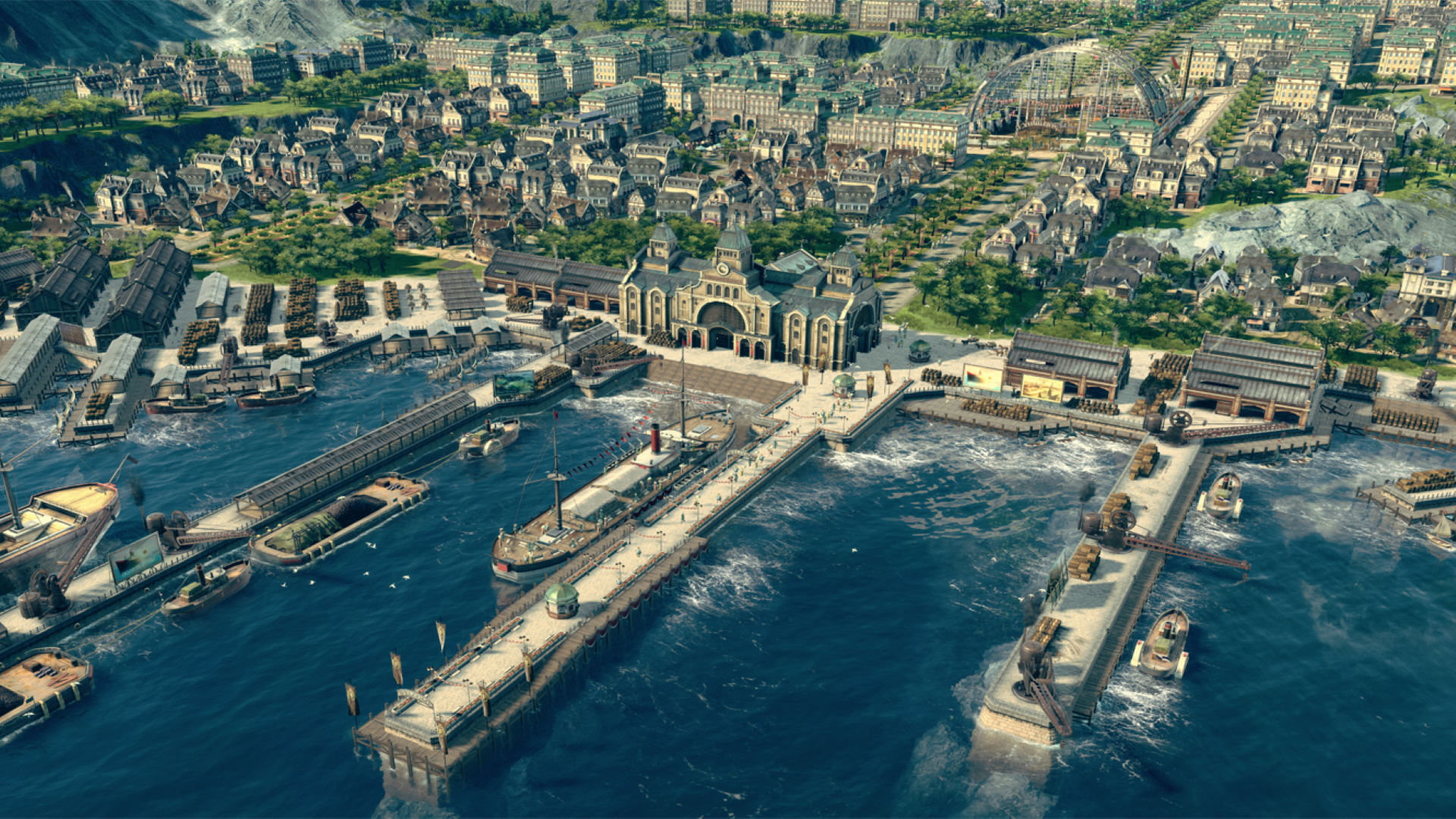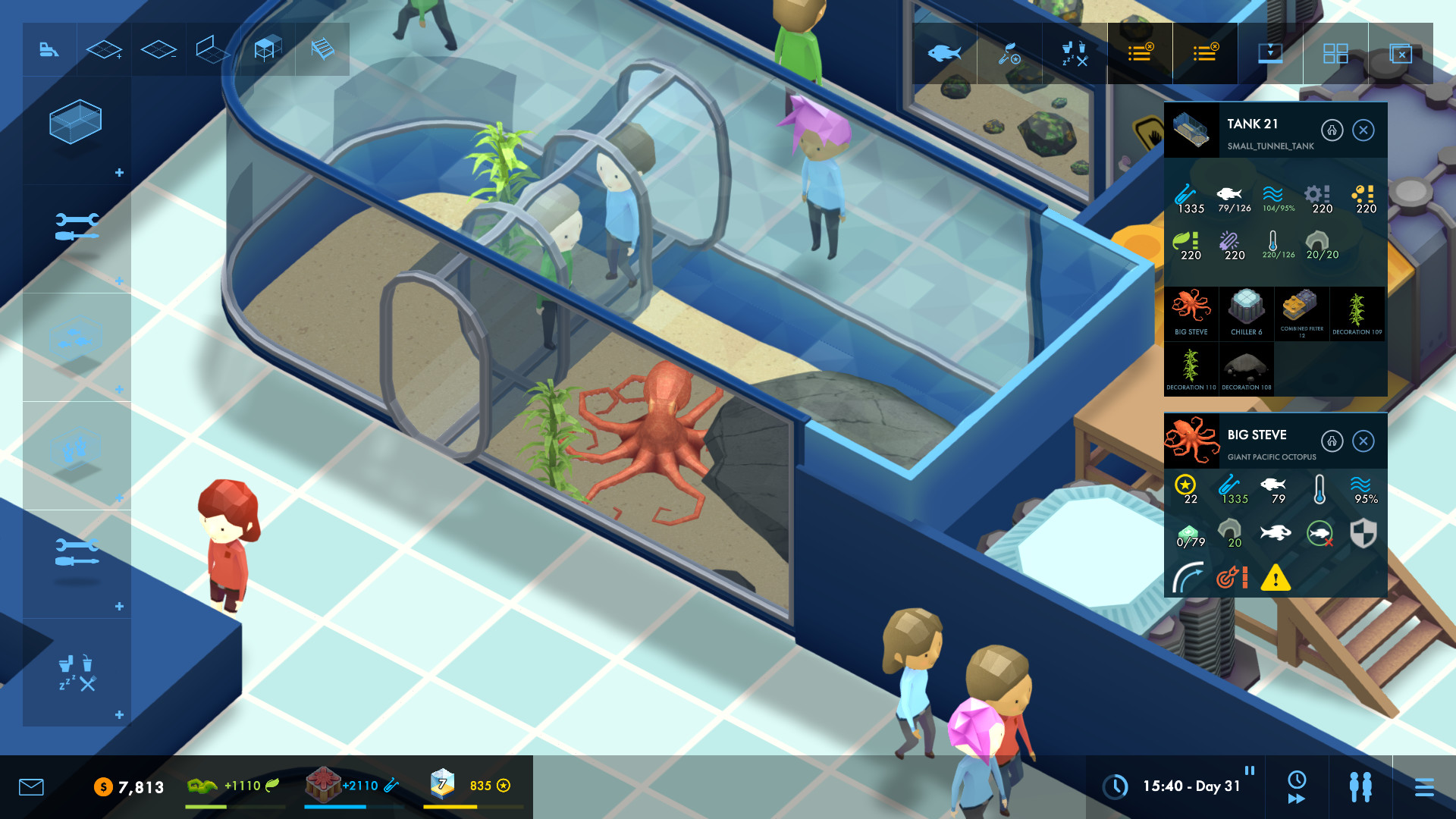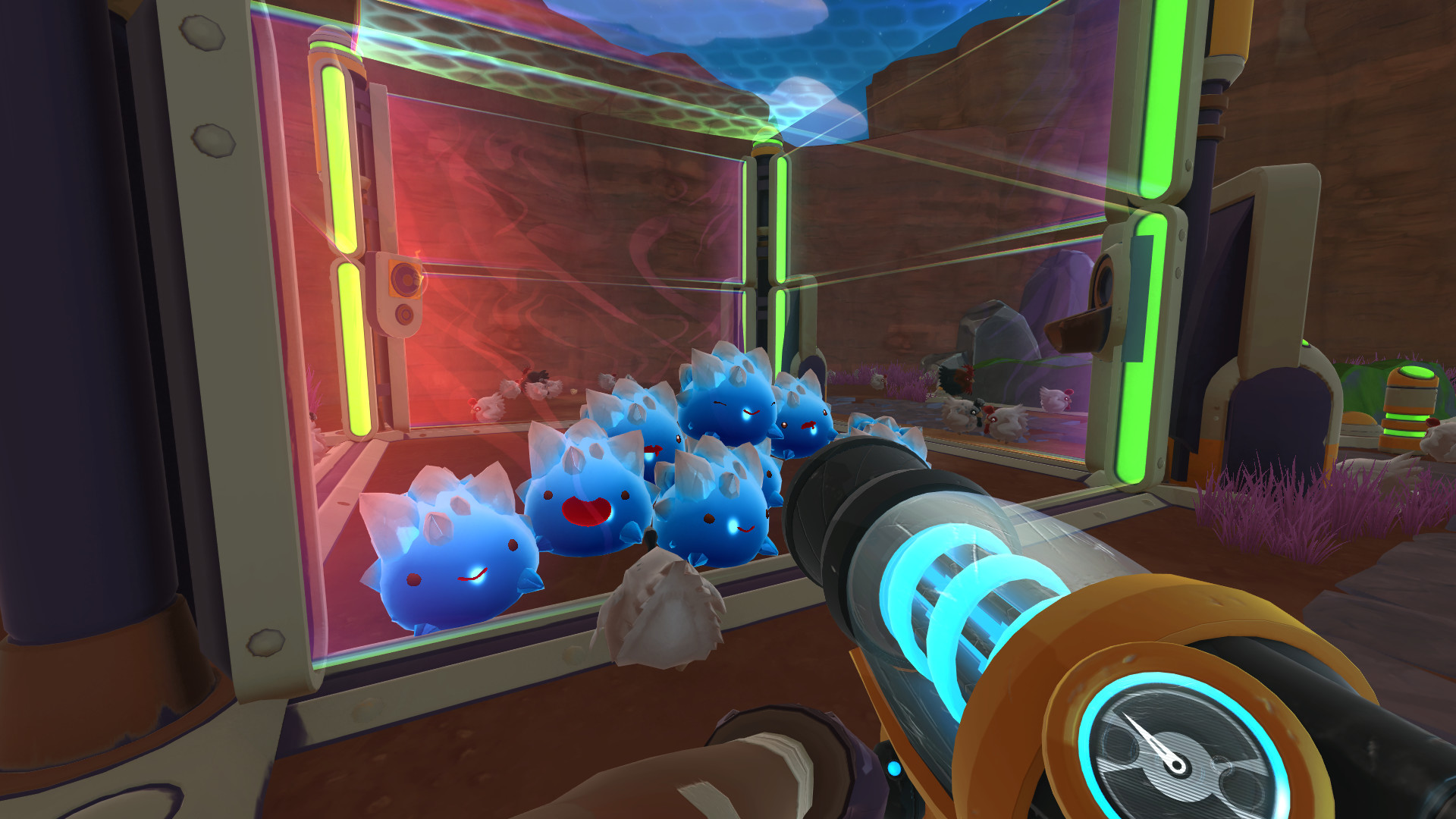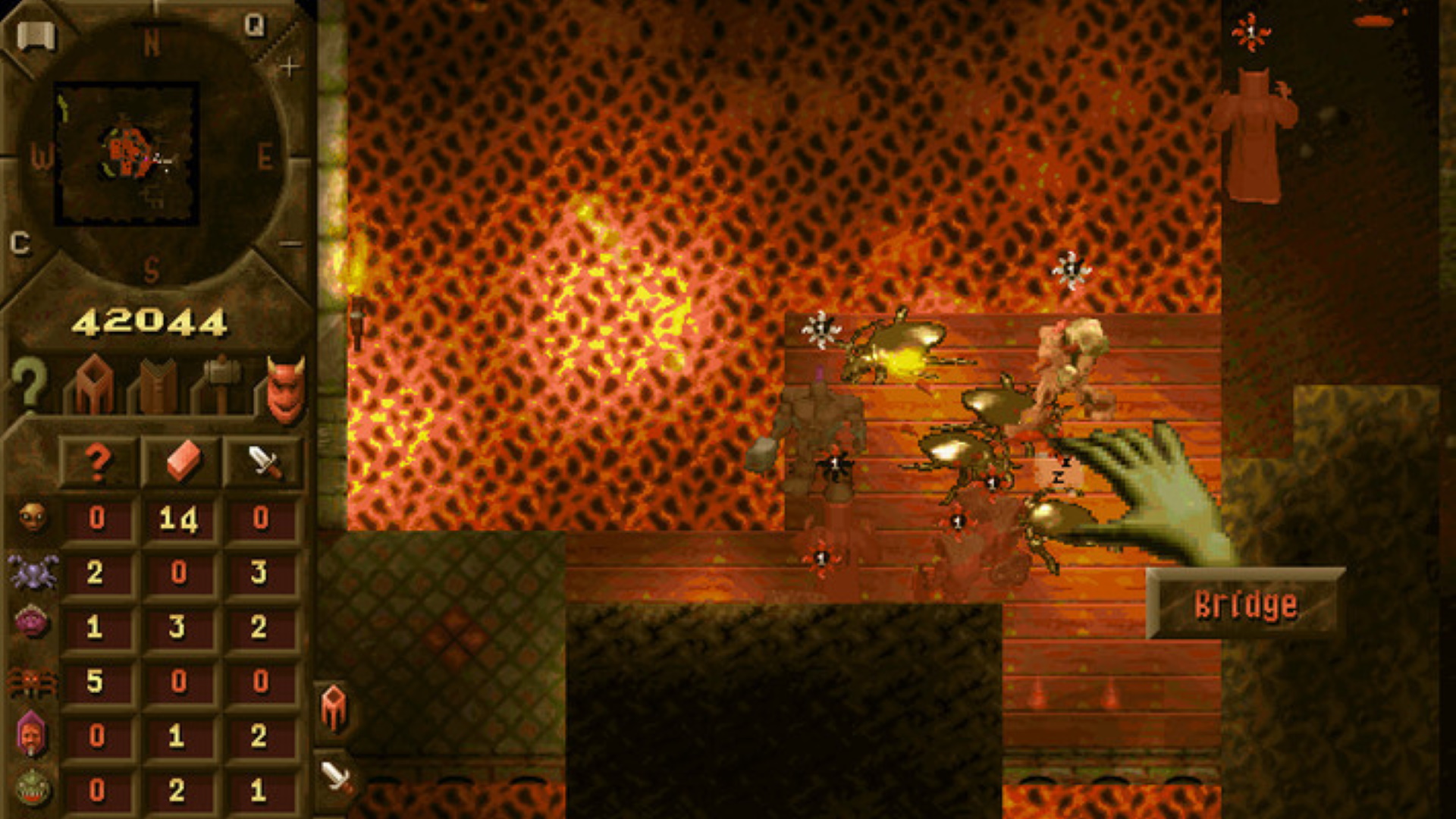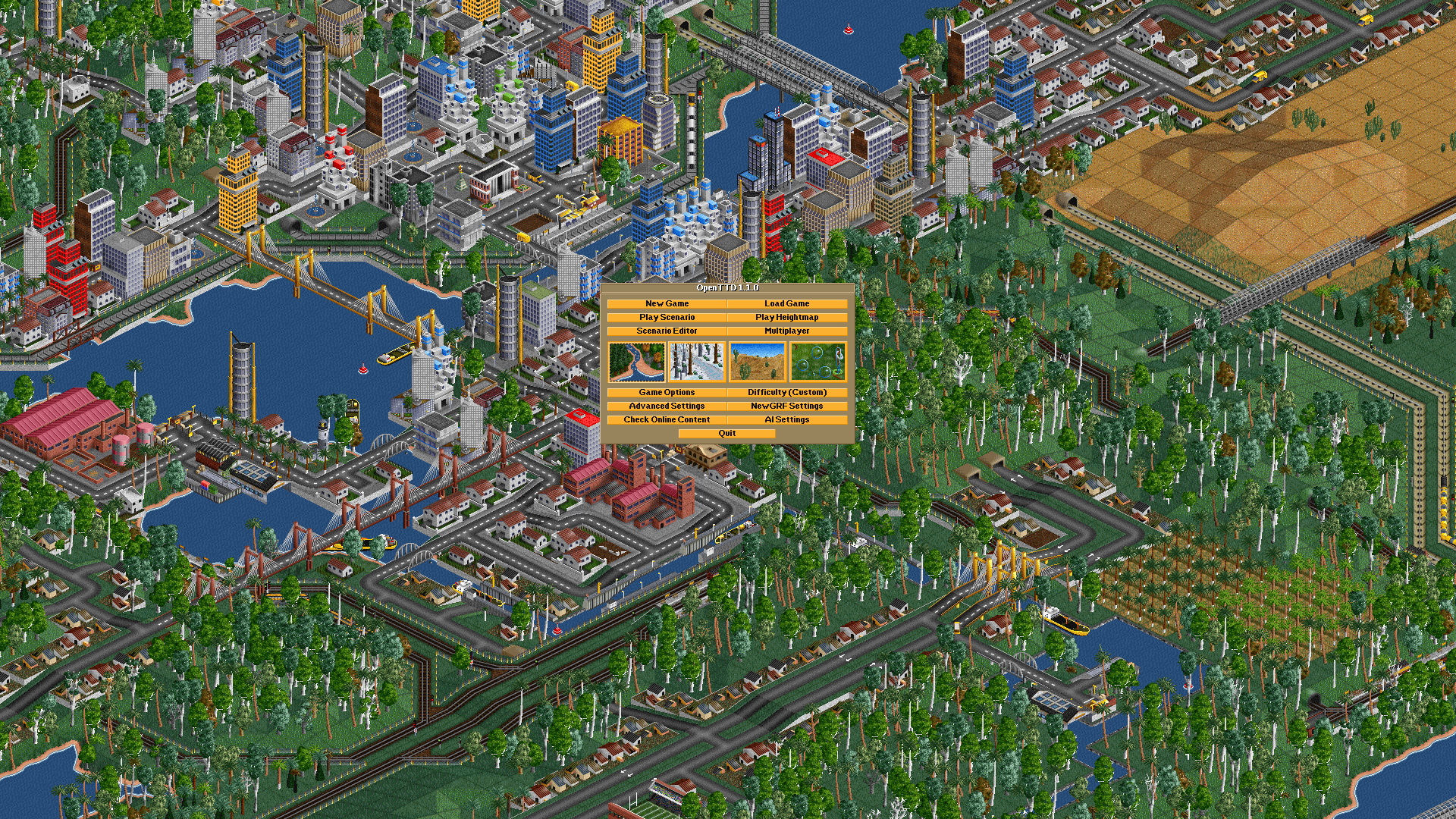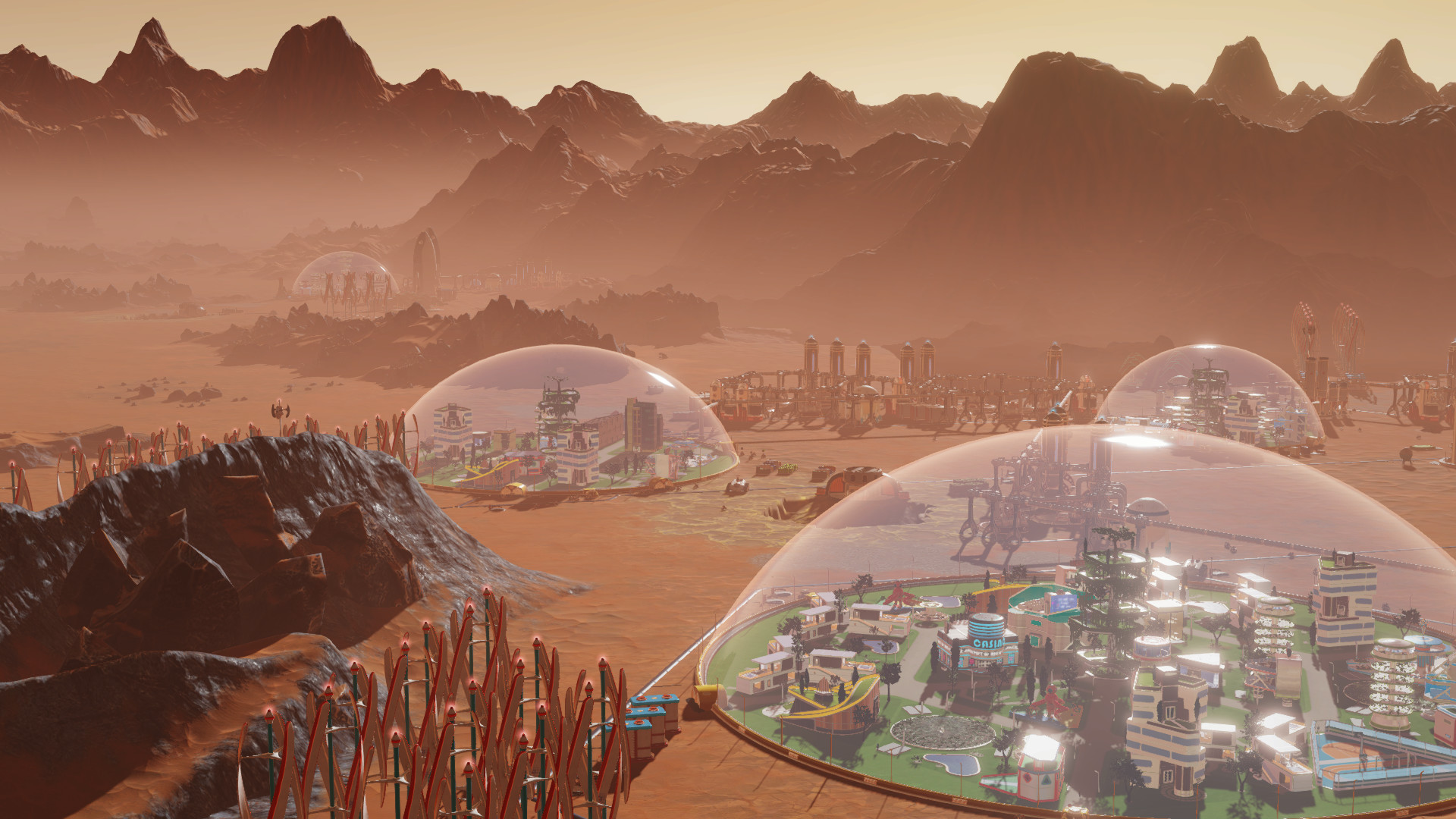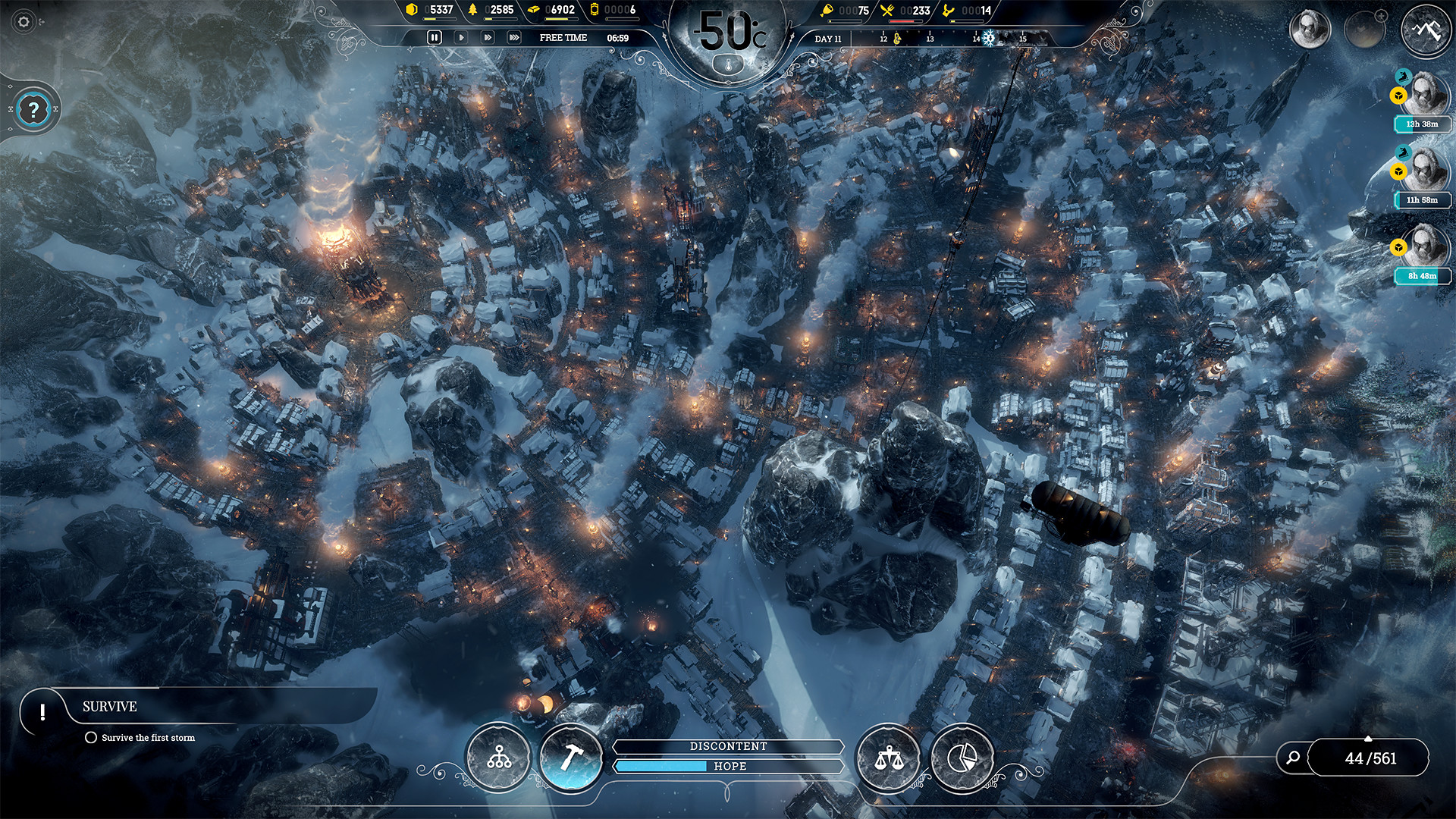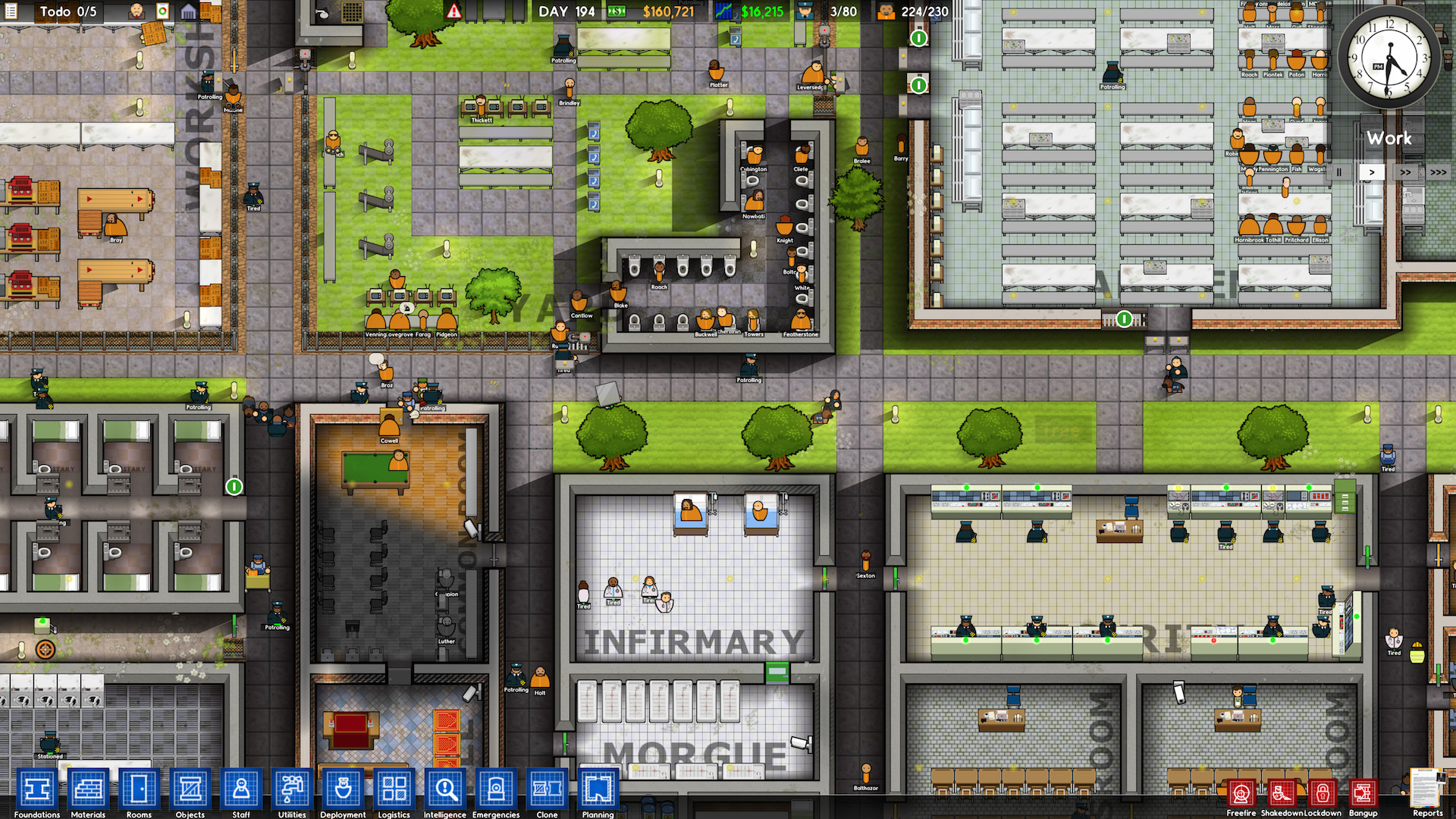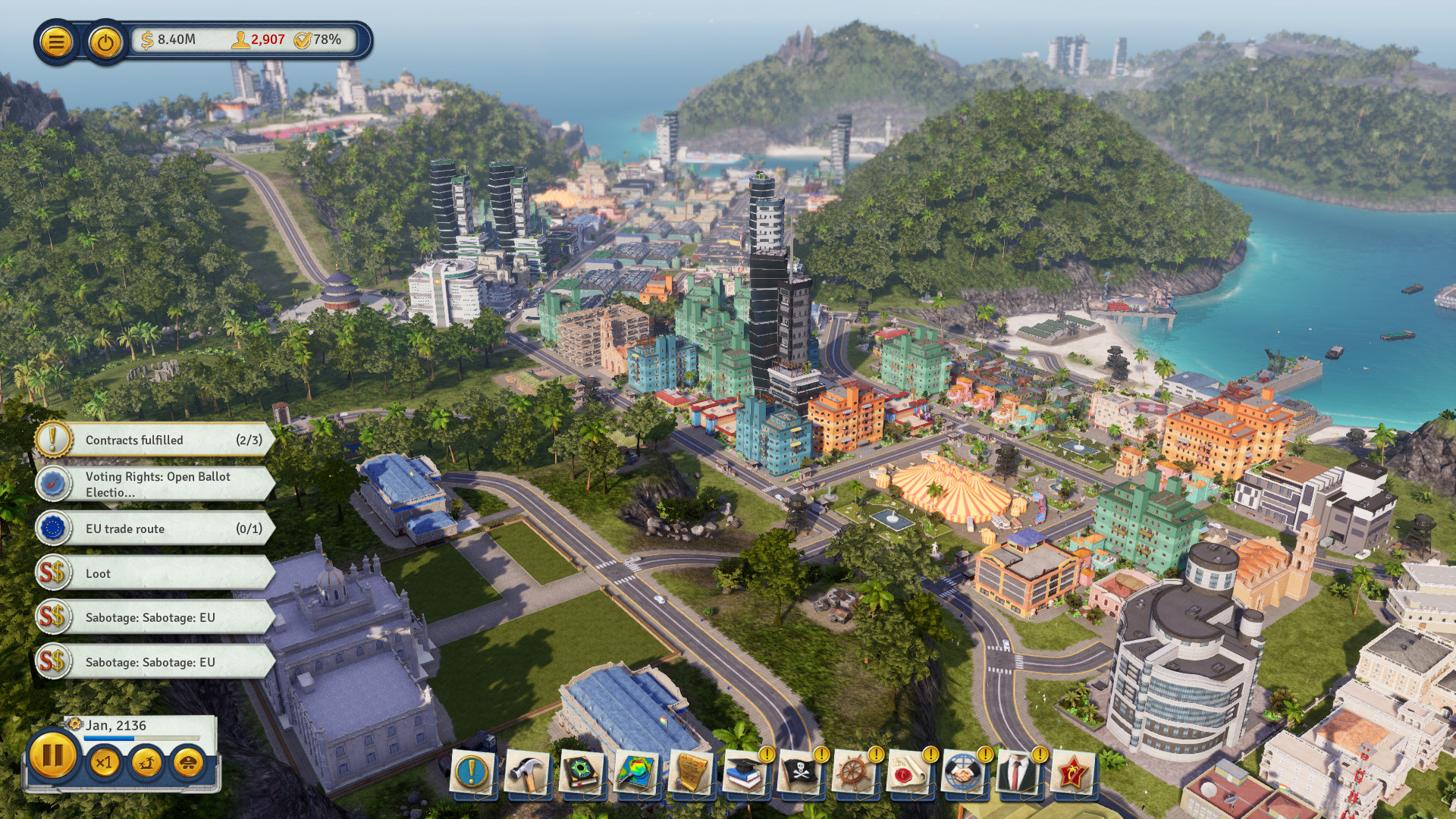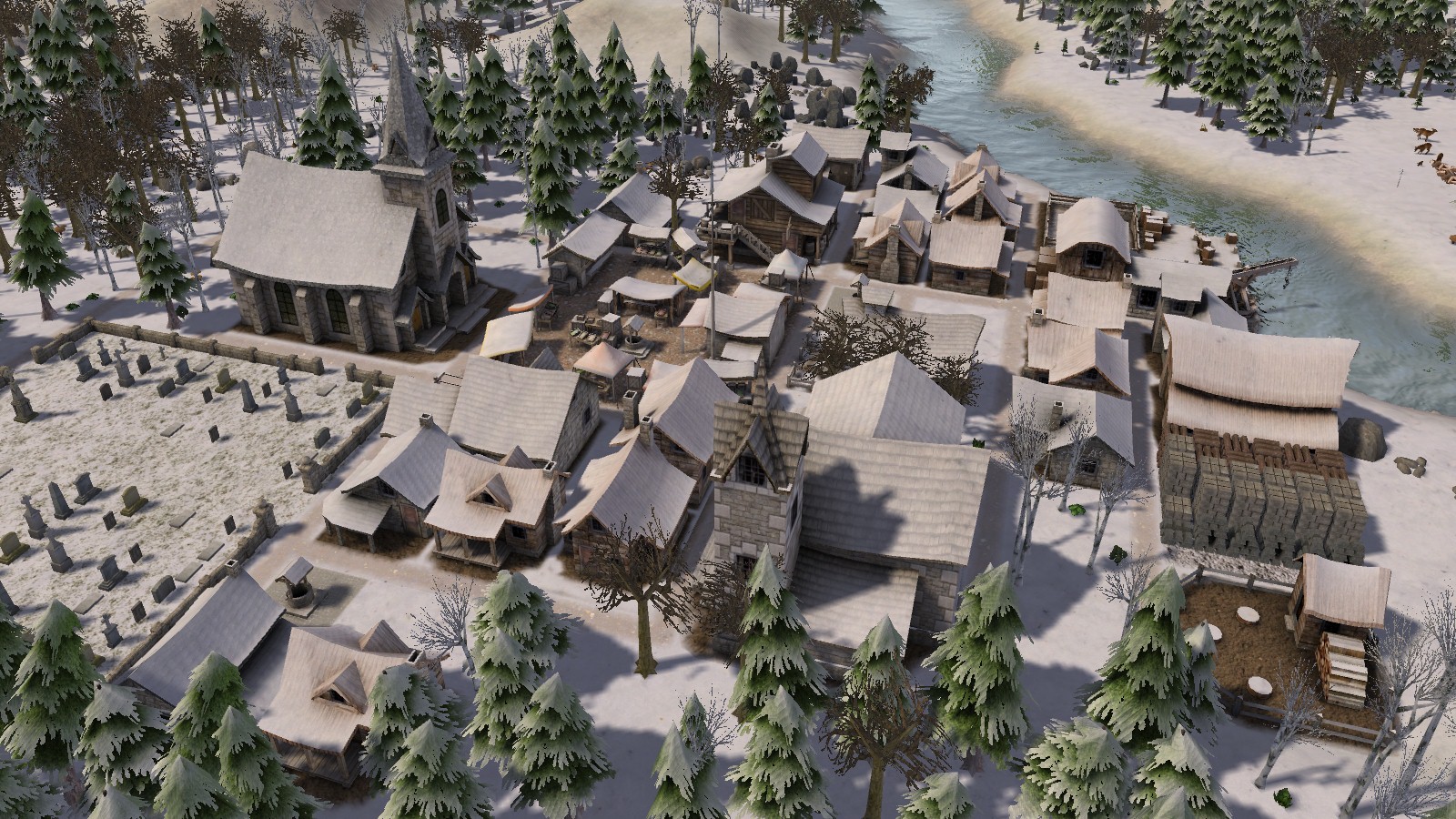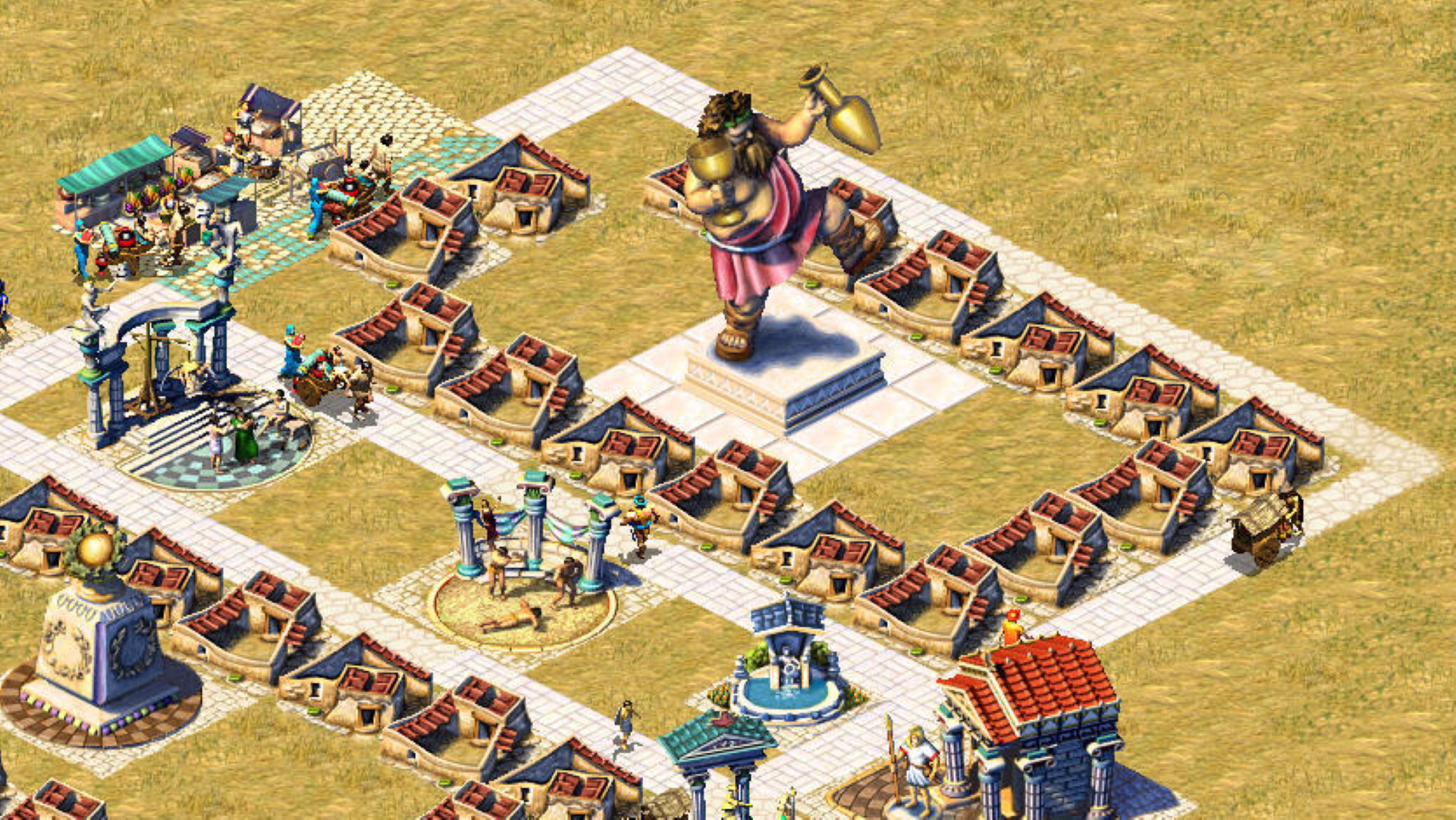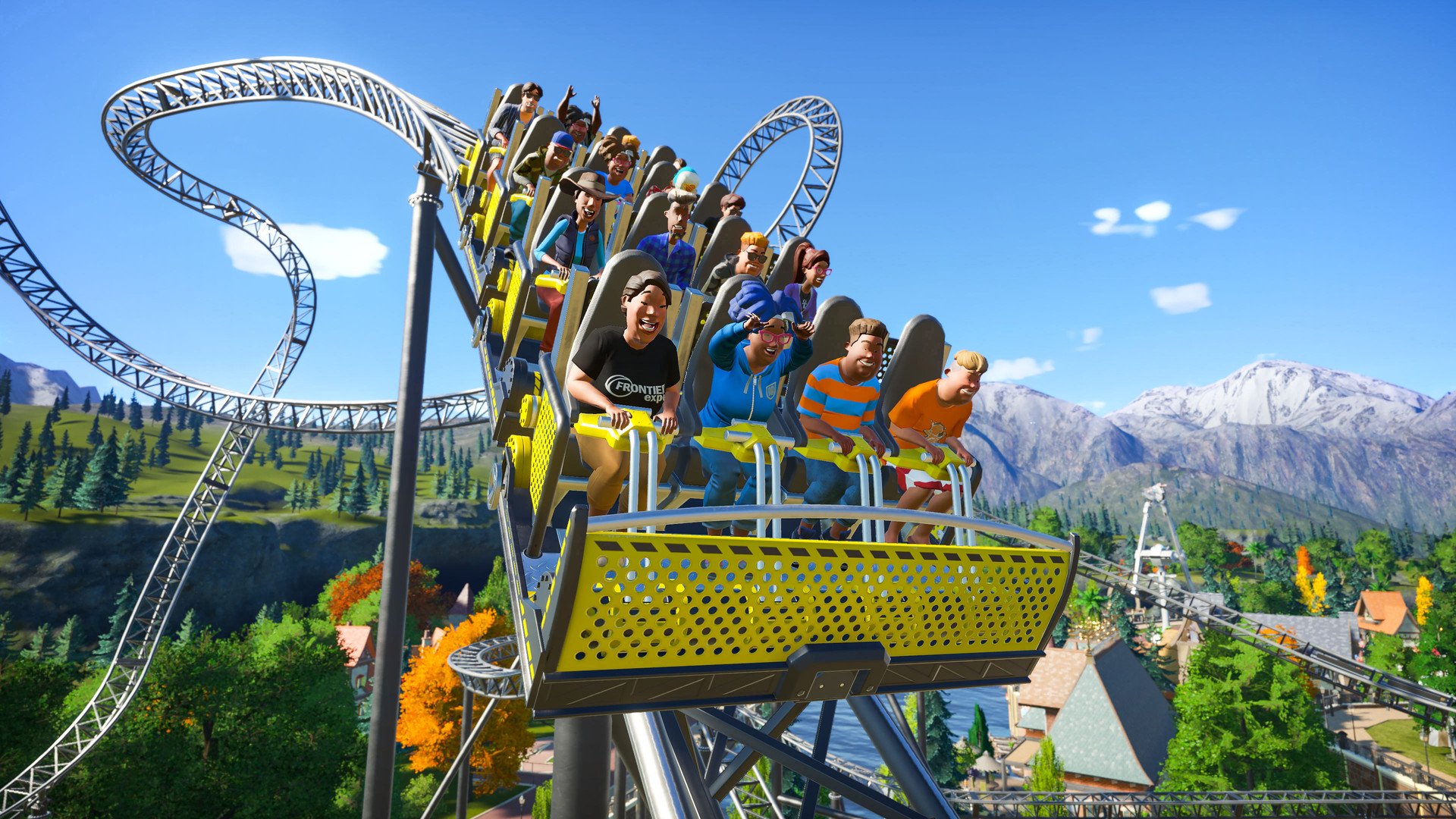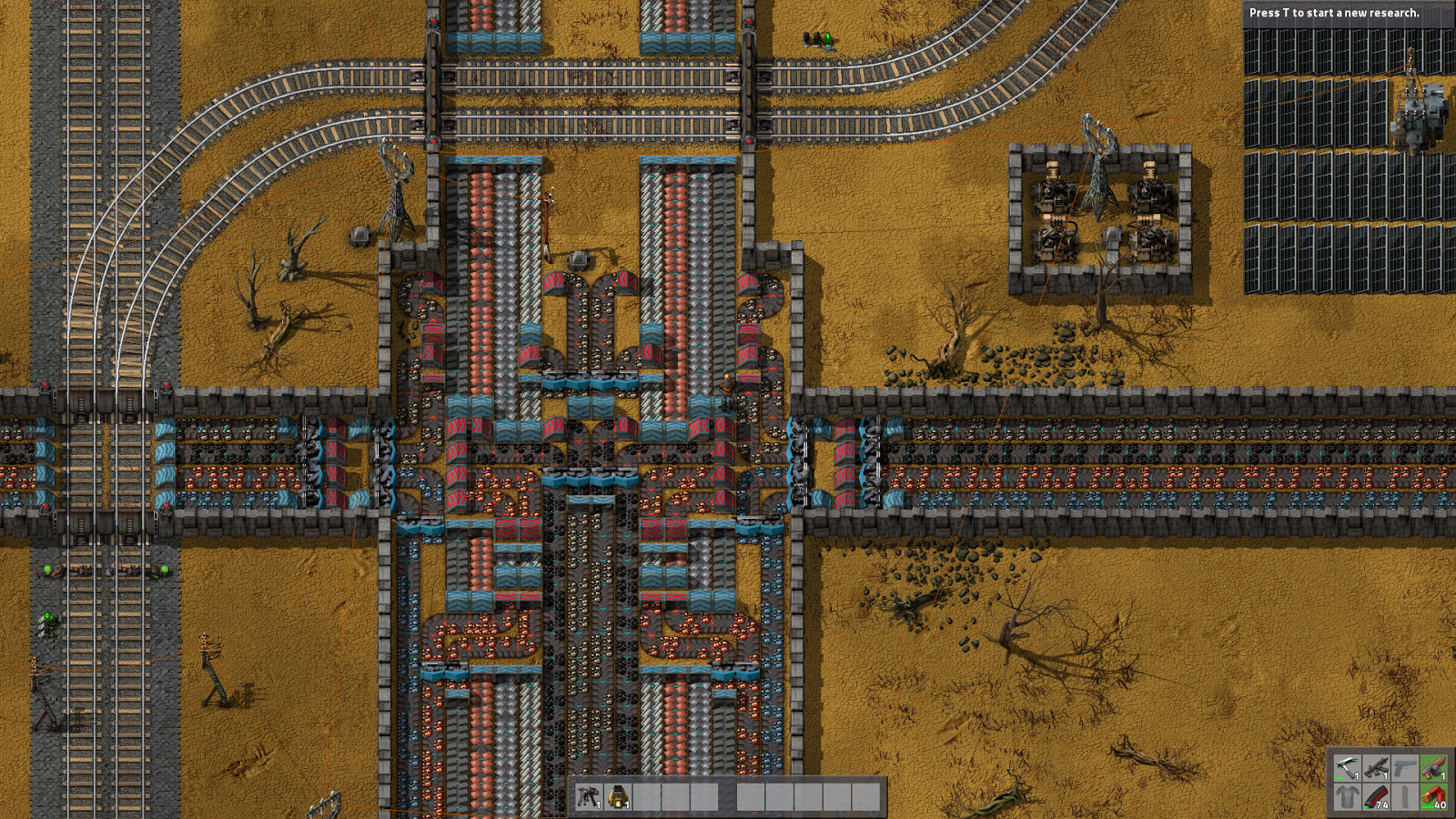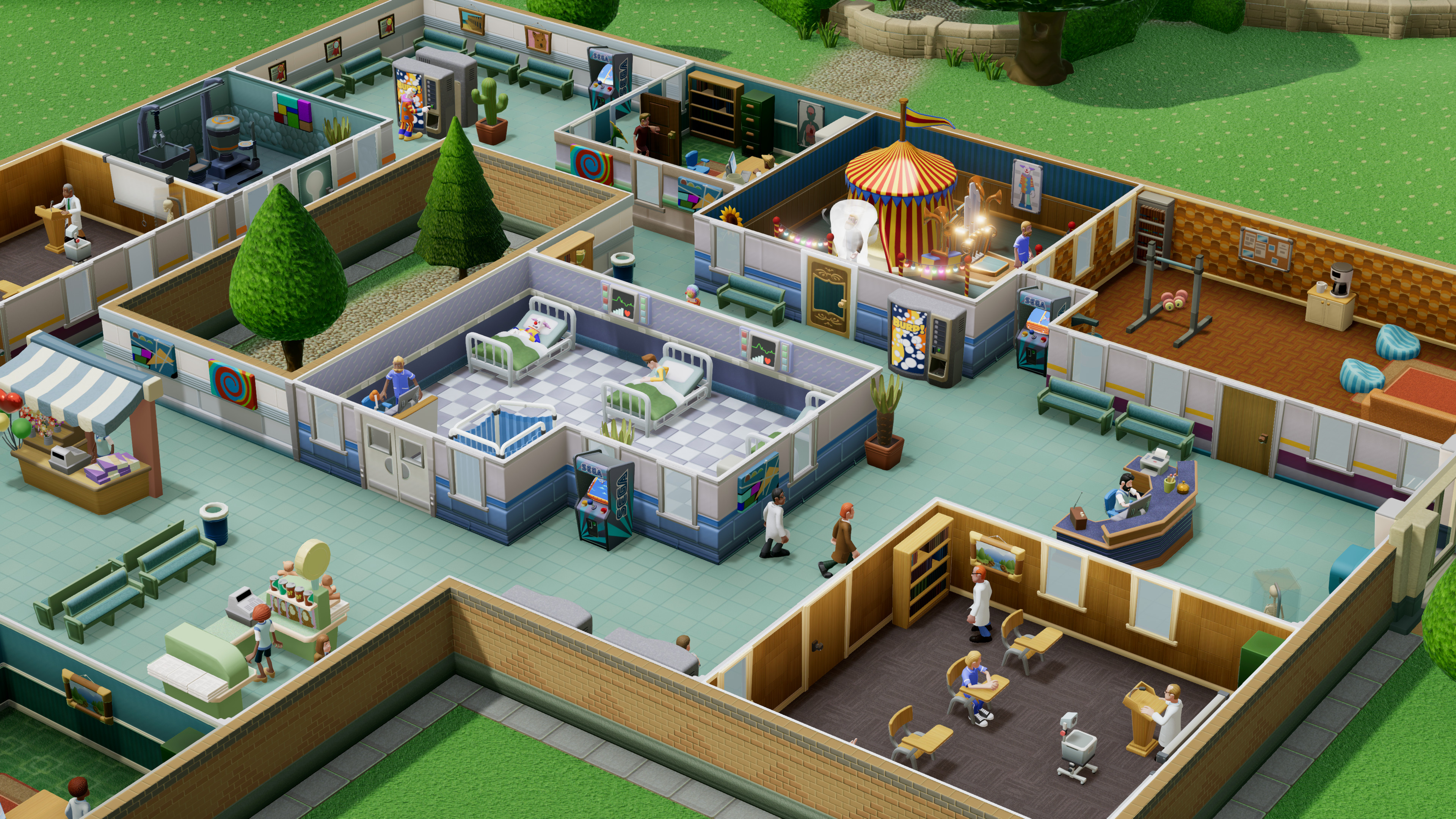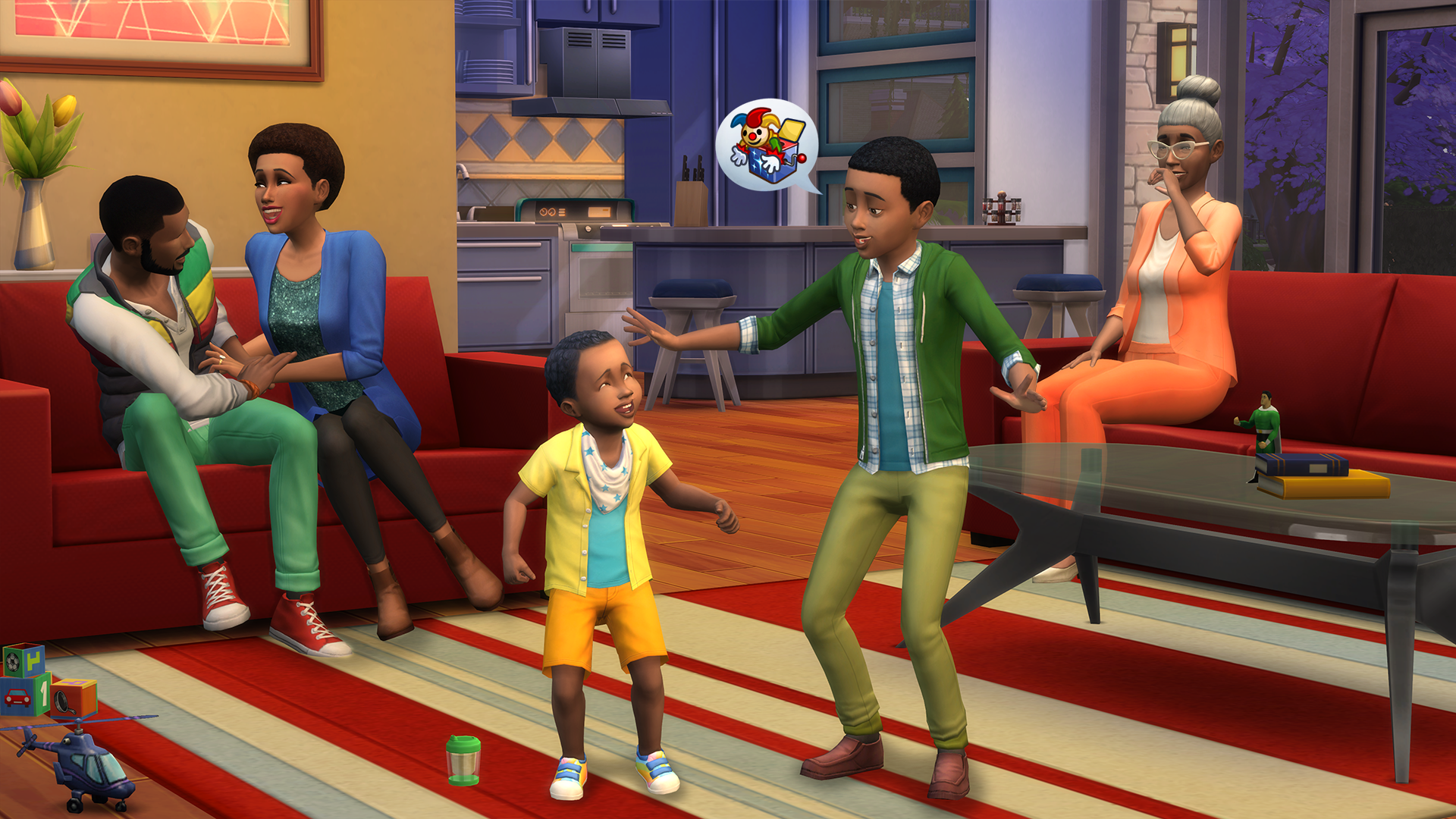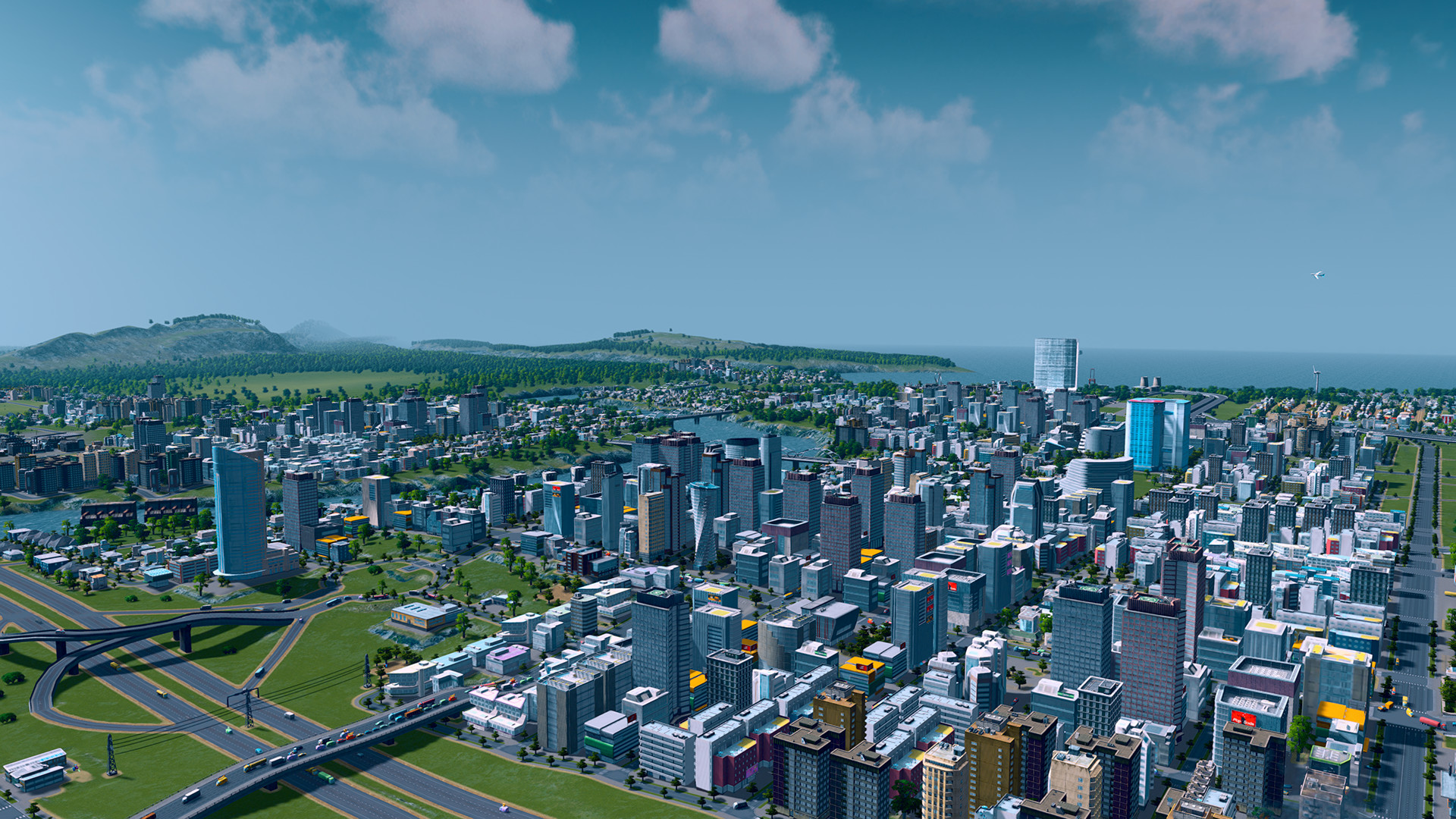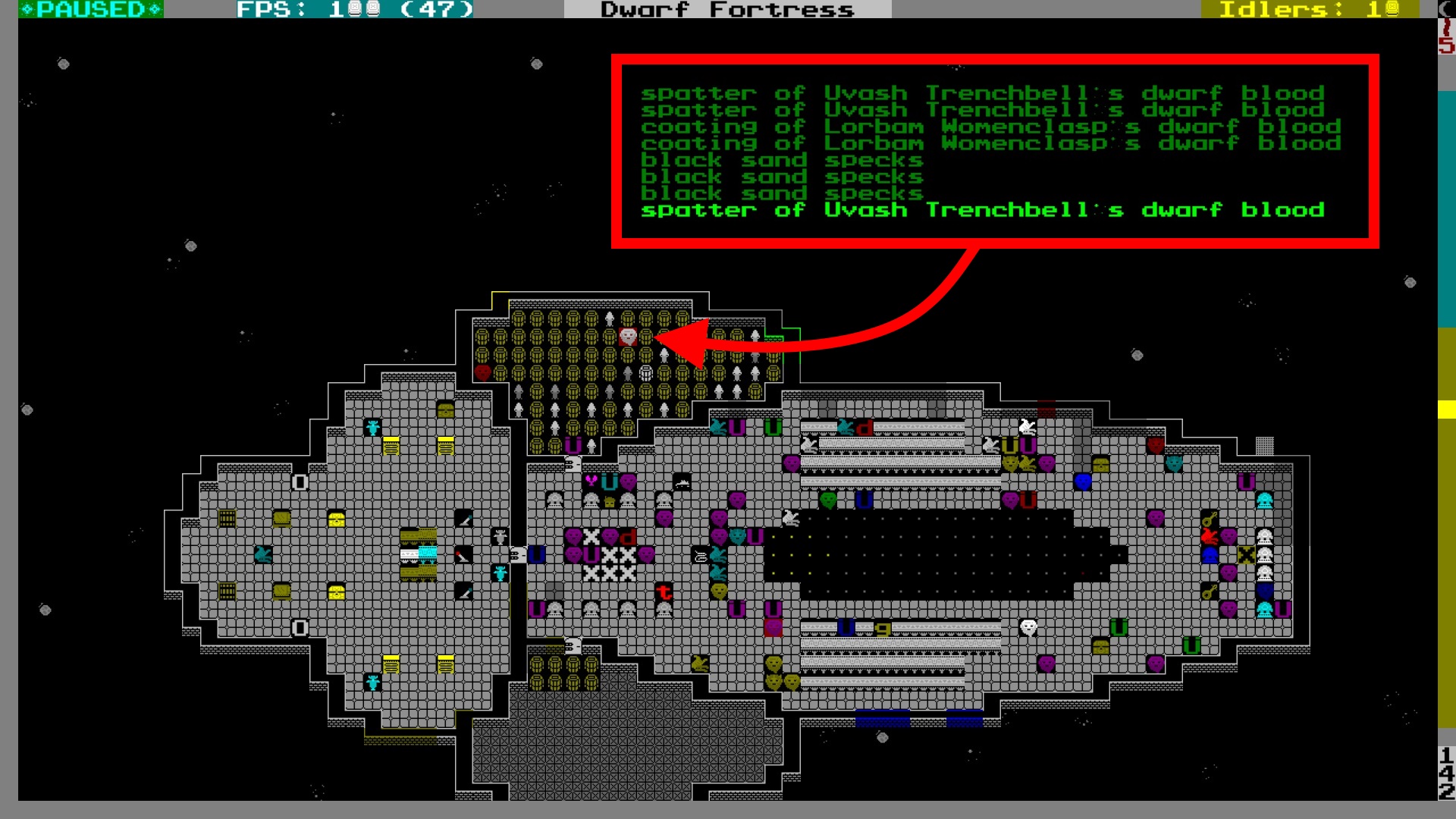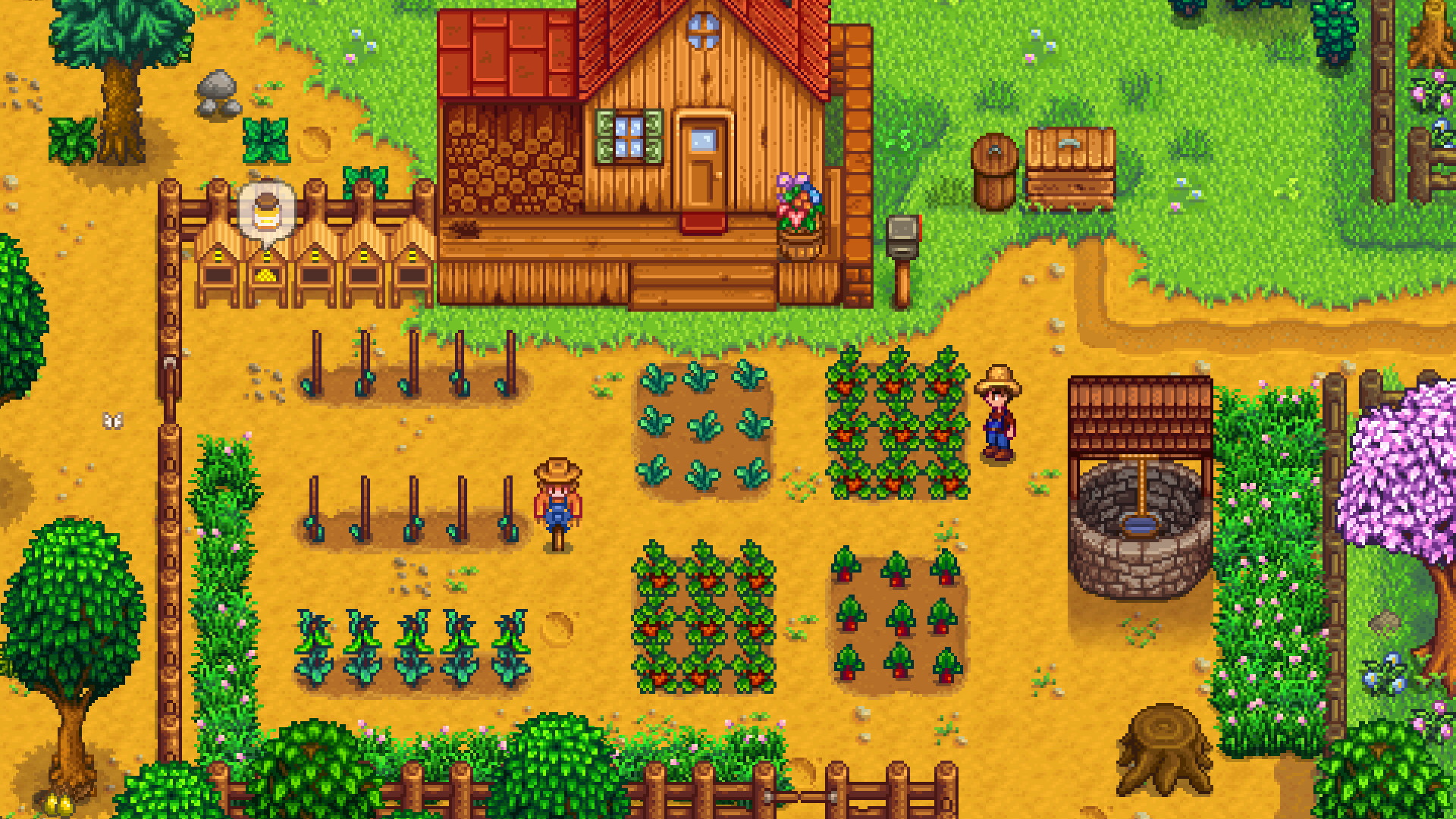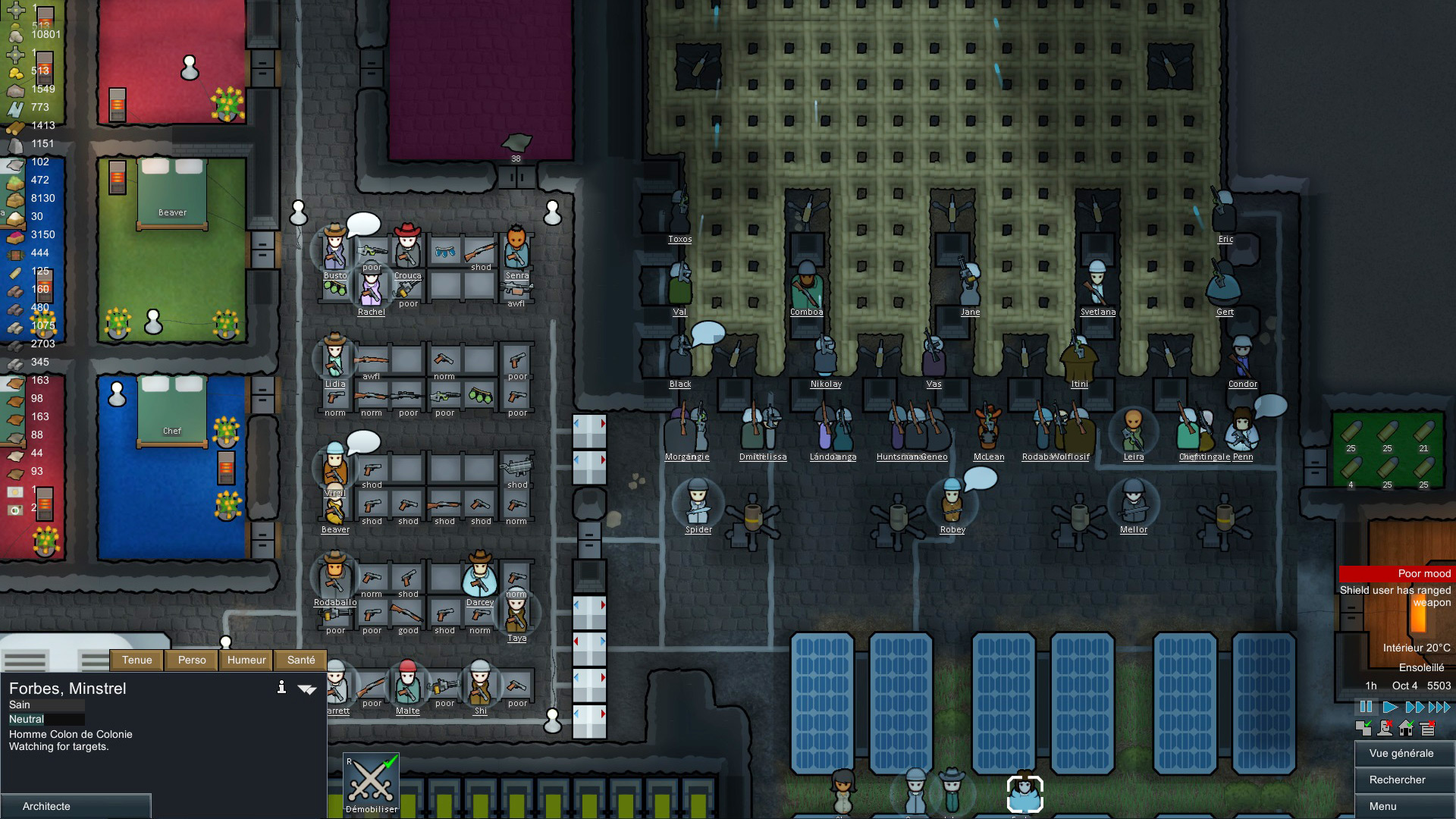The 20 best management games on PC
Avoid work with some relaxing simulated work
The last couple of years have been pretty good for management games, but only the select few have made the cut for our list of best management games you can play right now. If you're looking for something to sink into over the holidays, check out our picks below.
 Top 12 Best Management Games to Play on PC
Top 12 Best Management Games to Play on PC
Best management games
We've selected all different kinds of management games below, with something to satisfy you whether you want to run a household, keep colonists sane, process poisonous gases, or obsess over conveyor belt efficiency. The only rule is that it needs to be fun to play right now. That means we've excluded some formative classics that feel less easily recommended - although you'll still find a handful of games here that are old enough to drink. If you don't see your favourite on the list, it must be at number 21. You can write your own entry for the game in the comments, and we'll consider it for inclusion in a future revision to this list.
- Oxygen Not Included
- Anno 1800
- Megaquarium
- Slime Rancher
- Dungeon Keeper
- Open TTD
- Surviving Mars
- Frostpunk
- Prison Architect
- Tropico 6
- Banished
- Zeus: Master Of Olympus
- Planet Coaster
- Factorio
- Two Point Hospital
- The Sims 4
- Cities: Skylines
- Dwarf Fortress
- Stardew Valley
- RimWorld
20. Oxygen Not Included
Oxygen Not Included is one of a handful of Dwarf Fauxtress games in this list where you take charge of a small group of hapless people arriving in an inhospitable location, in this case the centre of an asteroid, and you must mine and construct the tools they need to survive. Where it differs from most of its peers is in the engineering rigour it requires from players.
You'll start by growing crops and turning algae into breathable oxygen, but resources deplete and demands increase rapidly. Block by block you'll expand to create more space, more resources, and before you know it your colony is a mess of inefficient pipes and wiring, your crops are withering from the heat, and your duplicants are urgently building life-saving machinery while holding their breath inside a toxic cloud. It's brutal, but it's also wonderfully engrossing. The challenges feel fair, too, because they all spill outwards from the game's careful simulation of basic scientific principles.
Where can I buy it: Steam.
19. Anno 1800
Anno 1800 is arguably one of the finest city builders ever made. Set in Western Europe during the nineteenth century, this is a game that starts out with idyllic rural farmsteads and ends with the hulking great railways and smoke-pumping factories of industrial commerce. Its early hours may feel overly familiar for Anno veterans, but once you've gone full industrial revolution, it really comes into its own. With one island up and running, it's time to move onto the next, each one coming with its own population, resources and labour requirements. Soon, you've got colonies all over the world with ships going back and forth all across the globe.
It gets even better when played with a friend in its multiplayer co-op mode, too. Whether you want to split the load or just really get into the nitty gritty of one colony's urban development while your partner keeps things ticking over everywhere else, Anno 1800 caters for dozens of different play styles. Or, you can test your world-conquering chops by going head to head with said friend in its competitive multiplayer mode. Whatever you're after, Anno 1800 has it all.
Where can I buy it: Epic, Humble.
18. Megaquarium
Fish are magical beings aren’t they? Well, anything that lives underwater is pretty impressive - so obviously, the best thing to do with them is to keep them in tiny little fish prisons so you can gaze longingly at their sweet, gormless faces forever. Megaquariam is a game that's all about managing an aquarium, from hiring the best staff members to making sure your tanks are the best they can be for your fishy friends. Some fish are bullies, while others are perfectly capable of living in harmony with one another. Others might like rocks, or plants, but mostly, they just want a bit of grub, kept at their optimal temperature, and for the glass to not be tapped.
The people you have coming to your aquarium must also be kept happy or else they’ll leave, get tired, need to pee, or get hungry. Plus, in the spirit of all those Bullfrog management games of yore, you'll also need to make sure there are lots and lots of bins. People who come to these places don’t just take their rubbish home with them if there aren't any bins knocking about. They’ll just drop it on the floor, the monsters. Benches, drink machines, toilets, and bins. The only things you need to keep people happy. And the fish, of course, let's not forget the fish.
Where can I buy it: Steam, GOG, Humble.
17. Slime Rancher
Slime Rancher might look cute on the surface, but beneath its gelatinous, googly-eyed exterior lies a heart of pure chaos. Unlike the beasts you'll find in other animal management sims such as Planet Zoo or even Jurassic World Evolution, the smiling blobs of Monomi Park's farming slime 'em up excel at getting themselves into scrapes while you're off exploring and gathering resources, whether it's bouncing out of their respective pens and escaping, or accidentally eating the "plorts" (or poop) of other slimes and turning into all-consuming tar monsters. If you've ever wanted to experience the anarchic world of rearing unpredictable livestock, then Slime Rancher is the management (or maybe that should be wrangling?) game for you.
Yes, the entire economy is based around the buying and selling of slime manure, but it sure puts a jolly old face on it. It's this sunny take on the farming games that makes Slime Rancher one of more approachable management games on this list as well. It doesn't get bogged down in the complexities of slime diets, pen conditions or anything else. All you need to do is make sure all that poop is scooped on a regular basis, because otherwise bad, bad things can happen while you're away. Still, even if you do come home to find entire sections of your farm have gone up in smoke, one look at a slime's jiggling grin is all it takes to make everything okay again. You might be starting over, but d'awww just look at their little faces.
Where can I buy it: Steam, GOG, Humble.
16. Dungeon Keeper
Not every horse in Bullfrog's legendary stable of genre-defining 90s management games stands up well by today's standards, particularly in terms of interface, and that's why Themes Park or Hospital of old aren't here. Dungeon Keeper sails close to the wind, too, but it remains fiendishly playable, especially if you install the free KeeperFX fan expansion pack which unlocks all sorts of high resolutions and assorted third-party fixes and maps. This game is about building a monster lair, keeping said beasties happy, and ultimately hurling them at invading 'heroes'.
It might be a bit daft compared to more modern games on this list, but there's a palpable loneliness to Dungeon Keeper. Its ill-tempered creatures shuffle through dark, rocky tunnels, angrily trying to sleep in their filthy lairs, collect daily pay they have no apparent use for, tinkering away to build traps and spells that only benefit a distant employer and... oh God, the metaphors. Am I... am I a bile demon? But that's the thing: where so many management games in the Bullfrog idiom were built around a core of pleasing people, this is, frankly, built around abusing them. Be it the monsters who toil and fight endlessly for your gain, or the humans you murder, imprison or torture to further swell your ranks, Dungeon Keeper is a deliciously dark game in a far more profound way than its snickering voice-over.
Where can I buy it: GOG, Origin.
15. OpenTTD
Transport Tycoon Deluxe remains one of our favourite transport management sims, even if the original is no longer available to buy on today's PC storefronts. Thankfully, we've got OpenTTD instead, a fan-made remake of Transport Tycoon Deluxe that expands on Chris Sawyer's 1994 original by adding more map sizes as well as LAN and online multiplayer that supports up to 255 players. The isometric countryside and urban landscapes are still beautifully tranquil in OpenTTD – despite the game's industrial core, settlements resemble picture-postcard villages and towns rather than smoggy iterations of Dickens' Coketown. Watching the landscape develop in sync with your ambitions is as rewarding as watching a level 1 Squire become a level 50 Demigod.
Business management games come in many flavours, but few offer the same kind of gentle challenges and immediately recognisable environments as this. Transporting goods and passengers might seem like a banal occupation, especially appearing alongside future wars and theme parks, but it's the familiarity of the systems that makes the game so engaging.
Where can I buy it: It's free.
14. Surviving Mars
This red planet colonisation sim has come along way since it first came out in March 2018. Back then, it felt a little bit barebones and kept tripping over its own user interface. Today, it's a different story. With a greater variety of domes and buildings, a more coherent UI, and the ability to link up your various fragile settlements, Surviving Mars is extremely hard to put down.
The slow growth from a handful of drones laying cables in the dust up to a thriving society of colonists is immensely satisfying, and the hostile environment and starkly limited resources means it feels like so much more an achievement than simply ordering some serfs to go build you a mansion by the river. By twinning management sim tradition with a survival mentality - your colonists need air, water and heat as well as food, and woe betide you if you fail to provide them - what could have been an old-fashioned building game becomes a thoroughly modern one.
Where can I buy it: Paradox, Steam, GOG, Humble.
13. Frostpunk
Most management games are about indulging yourself as opposed to providing a real challenge. They're about an ever-widening circle of building possibility - the more hours you put in, the more things open up. Frostpunk is different. Frostpunk's interest is in starkly limiting what options are available to you, to the point where you're frequently making some absolutely crushing decisions about what you have to sacrifice in order to gain or fix something else.
Set during a sort of steampunk post-apocalypse, you're tasked with keeping a handful of shivering, starving refugees of a new ice age alive. There are barely any resources, and anyone who does not live close to the life-giving heat generators won't last long. Sickness is inevitable. But you need the workers to bring in fuel and food to keep everyone else alive. Do you let the ill heal - or do you amputate? What about children? More hands on deck, or is having a childhood more important?
Frostpunk is management on the edge, where almost every decision you take - almost every building you erect - is a huge risk. It can be mastered in time, but until then, it is desperate, harrowing and a deft inversion of the usual race-to-riches approach.
Where can I buy it: Steam, GOG, Humble.
12. Prison Architect
Theme Hospital might be the first popular management game to dwell on the dark side of profiteering, but Prison Architect is an even darker proposition. Can you keep your inmates happy? Can you make a profit? How important is it to process death row residents efficiently? What happens when a riot breaks out?
The brilliance of Introversion's game is in its recognition that a prison is a series of systems - of housing and treatment, of security and recreation - and then in its application of sturdy simulations to each of those systems. Like the best management games, it allows you to create a smoothly running machine, but it also embraces chaos and roleplaying.
During the most intricate planning, you can forget what the theme implies about the resources you're processing, but Prison Architect is only ever a moment away from reminding you of the humanity within the machine.
Where can I buy it: Steam, GOG, Humble.
11. Tropico 6
Honestly, throw a rock in the air and just play whichever Tropico game it lands on - they're all a solid good time and they're all based around the exact same concept: you're the comedy dictator of an initially poor island nation, attempting to transform it into a land of tourist'n'trade riches while ruling with an at least partially iron fist.
A great many of the complexities of, say, a Sim City are discarded - there's no real worrying about powerlines or water supplies, and instead you get on with the business of plopping down buildings, with the twin goals of making it all look lively and attractive and generating ever-more filthy lucre. This is more of a toy box to rummage in than it is a strategic puzzle, but it has an extra layer of mild moral dilemmas that keep you hooked. For instance, the exile or death of troublemakers, bribing protesters, ignoring environmental concerns, rigging elections or cramming people into dangerous housing. Or you could stay the course, do the right thing and hope that it will all come good in the end.
Tropico 6 also finally adds some much-needed spice to this most conservative of management series by stretching out your latest empire across an entire archipelago of islands, switching your traditional goal of expansion for expansion's sake to something you're actively striving towards. It's a small change, sure, but as that old saying goes, even the smallest change can make a profound difference.
Where can I buy it: Steam, GOG, Humble.
10. Banished
Banished is a different sort of a management game. At first glance, it looks a lot like a Settlers or Anno - good-natured, brakes-on building and tree-chopping, enjoying the gradual and all-but-inevitable expansion from scruffy one-horse town to bustling old world metropolis. But no. Banished is about scratching out a rudimentary life in the dirt and cold, and maintaining that life even as the elements turn against you - striving to subsist rather than to explode into glory.
If approached wanting a cheery city-builder, you're going to have a horrible time. If approached as a sterling test of planning and resource management, in which failing to get it right means great suffering and even death for the handful of people in your charge, it's going to keep you very busy, challenged and, ultimately, feeling far prouder of yourself than most anything else in this list could hope to manage. It's cruel, but it makes the things we take for granted in other management games feel like titanic accomplishments.
Where can I buy it: Steam, GOG, Humble.
9. Zeus: Master of Olympus
Zeus: Master of Olympus might be as old as its Ancient Greek hills, but this 2D, historical city builder continues to hit the sweet spot of complexity, accessibly, prettiness and sheer charm. There is war if you want it, but really this is a game about making cheese. Also wool, olive oil and theatre. An artisanal colony all of your own. Just watch out for wolves. And there are puns. Lots of Ancient Greek puns.
You'll want the player-made resolution and widescreen fixes if you're planning on playing it today, but it remains an absolute delight. Sure, it's free of the strife and toil of ancient life, in favour of a colourfully genteel take on the pre-tech era, but it just gets on with being the very best pure town-builder it can, those nerve-calming loops of gentle expansion and efficiency-pursuit. Complex but approachable, Zeus is designed to be something you lose yourself in. Management games have nobly struck off in so many new directions now, but Zeus' take on their economy'n'craft core might just have never been bettered.
Where can I buy it: Steam, GOG.
8. Planet Coaster
The true heir to the Rollercoaster Tycoon series, Planet Coaster is a game of theme park management with a particular focus on building (and, most importantly, riding) increasingly elaborate and/or impossible rollercoasters. The true star of the show, though, is its Steam Workshop support, where you can import or upload remarkable and terrible constructions. People have built some jaw-dropping stuff in Planet Coaster, and this age of massive monitors means that riding them is a genuine thrill.
Even if you're not into sharing with or borrowing from the wider world, Planet Coaster's focus is much more on building stuff yourself than it is plopping down prefabs. This is the designer's management game, not the accountant's management game. Its construction tools are delightfully accessible, and you'll be able to coax meaningful results out of them very quickly indeed. Keeping your guests happy and the coffers overflowing is still a fundamental part of the game, though, and you'll need all the ancillary theme park money-rinsers, such as cafes and gift shops too. After all, if you build it, they will come.
Where can I buy it: Steam, Humble.
7. Factorio
Most management games are secretly puzzle games too: figuring out how to fit all these pieces into this finite space, and how to get x resource to y place as efficiently as possible. Factorio takes this idea and runs with it to its natural extreme: impossibly dense, maze-like conveyor belt constructions shuffling massive networks of production back and forth between endless auto-factories, making this to make that to make this to make that, loop upon loop upon loop upon loop.
To gaze upon a late-game Factorio screenshot without ever having played the game yourself is to gaze into the face of madness itself. But Factorio's greatest accomplishment is how quickly that obscene mountain of mechanised noodles makes sense once you've put a couple of hours into it. From the humble starting point of a single conveyor belt forlornly shifting resources to the next machine, a portal of possibilities opens up - if I do that, then this, but I'll need to link it to that, but oh that will need one of those and then, well, bang goes your life. Factorio is an achievement as frightening as it is remarkable: the mind that was able to design this game surely transcends humanity as we know it.
Where can I buy it: Steam, GOG, Humble.
6. Two Point Hospital
Two Point Hospital is a hectic hospital management sim, but it's immensely satisfying at the same time. When you finally get a brief window of respite, you expand, create new problems, compensate for those problems, and are able to enjoy watching the machine operate as smoothly as it's ever going to. Then it will throw a helicopter full of patients convinced they're Freddie Mercury at you, and suddenly the game's jaunty radio jazz transforms into a mocking dirge that guffaws at your efforts to maintain control.
Two Point Hospital is a business sim first. It’s about staying afloat, whether that be through fleecing your patients or by building your reputation as the best hospital around. It can often be just as entertaining when you’re failing, though. Since it balances visual chaos with workable, informative interfaces, you can nearly always find out what the problem is with a few clicks. It's as colourful as it is compulsive. It celebrates the legacy of Bullfrog (creators of spiritual predecessor Theme Hospital) even as it vastly improves and expands on so many elements. Want some light social commentary on the machine-like nature of public services that prioritise efficiency over patient well-being? It’s got that! Want some toilets made out of solid gold and DLC that lets you save Christmas with a Yeti? It's got that, too.
Where can I buy it: Steam, Humble.
5. The Sims 4
The strangest thing about Maxis' world-straddling life management series is how few other games ripped it off. The Sims remains effectively peerless within its honking great niche: undisputed heavyweight champion of the human needs, drives and desires simulation world.
From managing actual Sims - making sure they get to work on time, don't get lonely, don't lose all their friends, don't run out of money to pay the bills and (most importantly) don't end up dying - to building homes they can properly navigate, there's a lot to keep you busy. Life-long Simmers will probably tell you that The Sims 2 is the best in the series, but we swear by The Sims 4. It's also got one of the most robust and thriving modding communities around, and has received a shed-load of expansion packs, game packs, and stuff packs that each add more and more content and play time to the game. In fact, Maxis have just launched a new ‘challenge’ aspect to the game with Scenarios.
Where can I buy it: Origin, Steam, Humble.
4. Cities: Skylines
Not so long ago, we'd have picked SimCity 4 to represent modern-but-traditional city builders, but now that Cities: Skylines has had a couple of years to bed in, with copious DLC and the mammoth impact of its modding community, there's no doubt that Colossal Order's triumphant revival of the genre picks up Maxis' battered baton.
A session with Skylines is reminiscent of the golden age of gaming. That's not any particular year; it's related to your own relationship with games. Remember when you'd spend hours playing without worrying about the outside world, or even feeling any pressure from within the game itself? Hours of comfortable, calming bliss, laying roads and watching a city grow before your eyes. Skylines creates those long holidays from reality. It's relaxation in game form.
That's not to say the actual simulation isn't complex, though. If you want a challenge, Skylines can deliver, though you'll often have to set your own parameters. The brilliance of the game is in the variety of cities it can host, from perfect geometrical machines to wonderful recreations of real life locations. It's like the biggest box of building blocks in the world.
Where can I buy it: Steam, Humble, Paradox.
3. Dwarf Fortress
Dwarf Fortress is much more than a management game, but where else could we file it? The question should really be - if Dwarf Fortress is a management game, by what standard is it not THE BEST management game? Because it's unfinished? Because it's too broad and baggy to allow for definite managerial approaches to emerge? Because learning the obtuse interface is Actual Work? Because it's about dwarves and we all know that management games are all about taxes?
Admittedly, Dwarven Tax Tycoon would be a fine proposition, but the actual reasoning behind Dwarf Fortress' position as the 3rd best management game of all time is known only to a select few. Whether you're allergic to the number three or not, you should play Dwarf Fortress right now - it's one of the most remarkable, complex and unpredictable games ever made, and probably always will be. Even over a decade on, nothing else drills as deep into the mantle of community-simulation as Dwarf Fortress. Yes, it's a bear to learn, but the rewards for doing so are off the chart.
Where can I buy it: It's free.
2. Stardew Valley
All the best management games bring something extra to the core gather/build/grow flow. With Stardew Valley, it's role-playing. Mostly, you're diligently plating, tending and harvesting crops, then selling or trading them on, and this gently productive loop is why almost anyone who hears the words "Stardew Valley" will look simultaneously misty-eyed (because it's such a warm game to be in) and guilty (because it effortlessly consumes any spare time you can give it).
But just as you tend your fields, so too do you tend relationships with the NPC townsfolk, slowly coaxing their stories out of them, slowly opening up new possibilities in what you can do / grow. Context is something that's so often lacking in other management games: you exist in some void, building and spending, with no sense of connection to anything or anyone else outside of it. You only care about people in terms of numbers. Here, you care about them as people, and so managing your farm, the core acts of collection, growth and expansion, has meaning. It is connected to the town, it brings good things to the town. You bring good things to the town.
But, mostly, waking up and rushing to see if today's the day your potatoes have finished growing never stops being as thrilling as it is charming. This is management through a microscope, instead of the usual city-scale view. Stardew Valley is an enduring, crossover success, and rightfully so.
Where can I buy it: Steam, GOG, Humble.
1. RimWorld
There are management games about buildings, and then there are management games about people. RimWorld, for all the bird's-eye perspective and homespun wooden structures, is very much about people. The survivors of a crash-landing on an unknown world, to be specific, trying to survive and then thrive in a hostile place. But the heart of the game is their AI-driven personalities, their preferences, limitations, specialities, fears, hobbies and relationships with each other. If you don't pay heed to these, the beasts outside are the least of your problems. Each colonist has their own mind, and you will have to learn it well.
Personality even comes into play with your choice of 'storyteller', a sort of AI dungeon master who controls the pace and nature of the disasters you face, and those crises do extend to building and farming too - look out for exploding power cells, crop blights and vomiting chickens amongst the many, many ways your colony might be laid suddenly low. There is an ultimate objective - escape - but the genius of RimWorld's genius is how free-rolling and wildly unpredictable it is, and how it quietly writes a new story for you every time you play. Together, they cement its place as the best management game you can play today on PC.
Where can I buy it: Steam, GOG, Humble.
